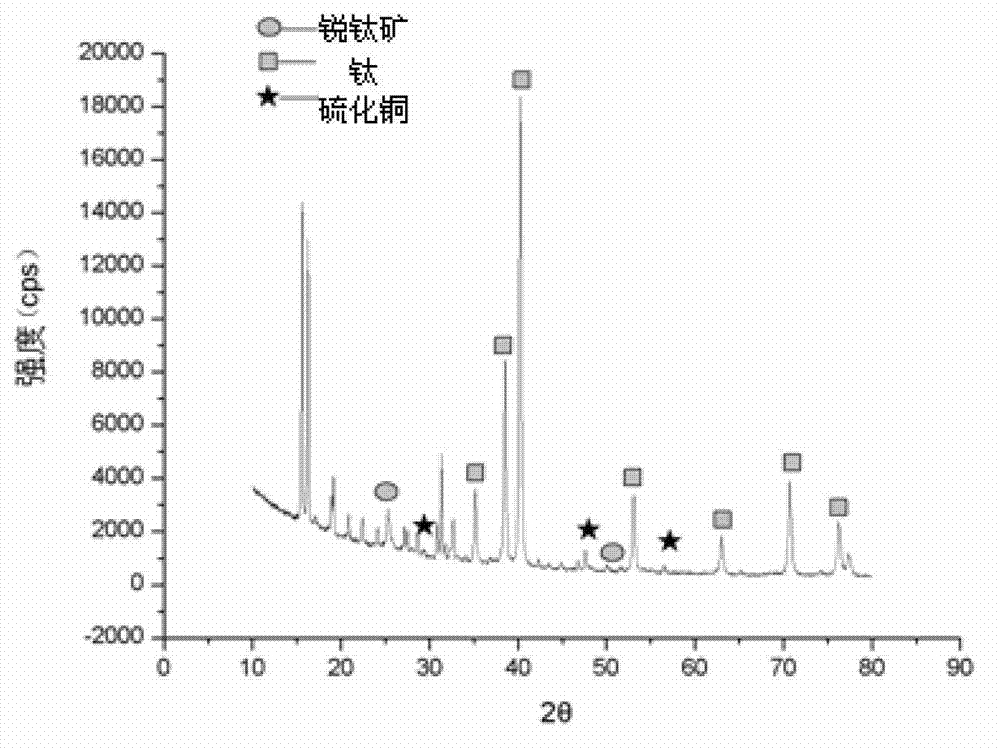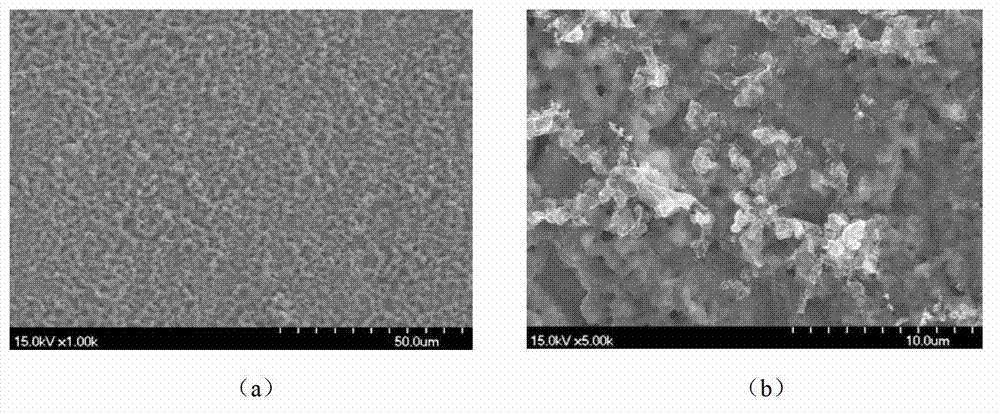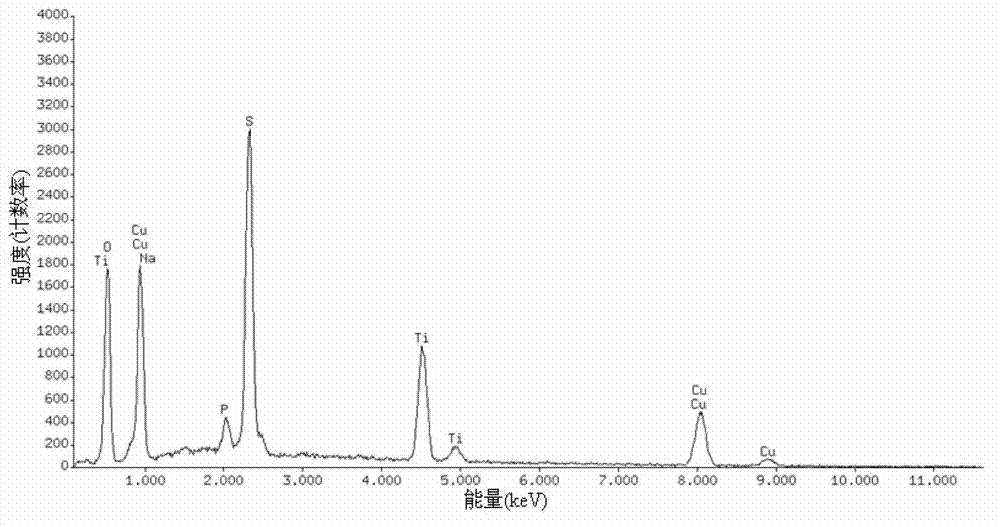Preparation method of nano TiO2 thin-film material
A thin-film material and thin-film preparation technology, applied in chemical instruments and methods, catalyst activation/preparation, physical/chemical process catalysts, etc., can solve problems such as low catalytic efficiency and loss, and achieve low cost, conducive to industrial production, photocatalytic The effect of high degradation rate
- Summary
- Abstract
- Description
- Claims
- Application Information
AI Technical Summary
Problems solved by technology
Method used
Image
Examples
Embodiment 1
[0013] Raw material: 25mm×15mm×2mm rectangular pure titanium sheet, 10g / L Na 3 PO 4 Solution, 1g / L NaF solution, 0.05mol / L copper sulfate solution.
[0014] Step 1: Place the pretreated titanium sheet on the micro-arc oxidation equipment for micro-arc oxidation (the sample is immersed in the treatment solution as the anode, and the stainless steel container with the cooling system is used as the cathode). The experimental parameters are: voltage 420V, preparation Time 30min, Na in phosphate electrolyte system 3 PO 4 The concentration is 10g / L, the NaF concentration is 1g / L, and the electrolysis temperature is controlled below 35℃; then the prepared nano-TiO 2 The films were rinsed with deionized water and dried.
[0015] Step 2: The prepared nano-TiO 2 The film was immersed in a copper sulfate solution with a concentration of 0.05 mol / L for 12 h, then taken out, washed with deionized water, and air-dried.
Embodiment 2
[0017] Raw material: 25mm×15mm×2mm rectangular pure titanium sheet, 10g / L Na 3 PO 4 Solution, 1g / L NaF solution, 0.075mol / L silver nitrate solution.
[0018] Step 1: Place the pretreated titanium sheet on the micro-arc oxidation equipment for micro-arc oxidation (the sample is immersed in the treatment solution as the anode, and the stainless steel container with the cooling system is used as the cathode). The experimental parameters are: voltage 420V, preparation Time 30min, Na in phosphate electrolyte system 3 PO 4 The concentration is 10g / L, the NaF concentration is 1g / L, and the electrolysis temperature is controlled below 35℃; then the prepared nano-TiO 2 The films were rinsed with deionized water and dried.
[0019] Step 2: The prepared nano-TiO 2 The film was immersed in a silver nitrate solution with a concentration of 0.075 mol / L for 14 h, then taken out, washed with deionized water, and air-dried.
Embodiment 3
[0021] Raw material: 25mm×15mm×2mm rectangular pure titanium sheet, 10g / L Na 3 PO 4 Solution, 1g / L NaF solution, 0.1mol / L cerium nitrate solution.
[0022] Step 1: Place the pretreated titanium sheet on the micro-arc oxidation equipment for micro-arc oxidation (the sample is immersed in the treatment solution as the anode, and the stainless steel container with the cooling system is used as the cathode). The experimental parameters are: voltage 420V, preparation Time 30min, Na in phosphate electrolyte system 3 PO 4 The concentration is 10g / L, the NaF concentration is 1g / L, and the electrolysis temperature is controlled below 35℃; then the prepared nano-TiO 2 The films were rinsed with deionized water and dried.
[0023] Step 2: The prepared nano-TiO 2 The film was immersed in a cerium nitrate solution with a concentration of 0.1 mol / L for 15 h, then taken out, washed with deionized water, and air-dried.
PUM
| Property | Measurement | Unit |
|---|---|---|
| catalytic efficiency | aaaaa | aaaaa |
Abstract
Description
Claims
Application Information
 Login to View More
Login to View More - R&D
- Intellectual Property
- Life Sciences
- Materials
- Tech Scout
- Unparalleled Data Quality
- Higher Quality Content
- 60% Fewer Hallucinations
Browse by: Latest US Patents, China's latest patents, Technical Efficacy Thesaurus, Application Domain, Technology Topic, Popular Technical Reports.
© 2025 PatSnap. All rights reserved.Legal|Privacy policy|Modern Slavery Act Transparency Statement|Sitemap|About US| Contact US: help@patsnap.com



